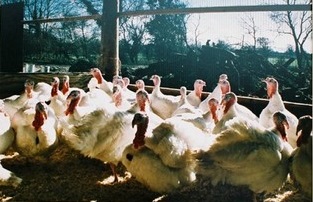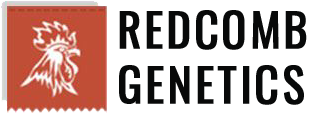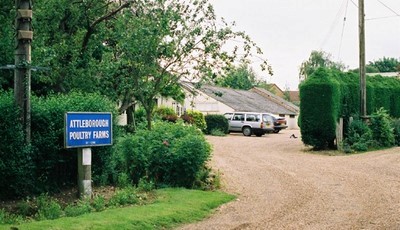Henry Abbot moved with his parents Robert and Agnes Abbot and two brothers Dick and Tom and sister Agnes, from their home farm, Abbots Hall in Kirkby Lonsdale, Westmoreland in 1882 to Norfolk. They had purchased the Rookery Farm in Thuxton. In Kirkby Lonsdale Henry had been very successful in his hobby of breeding poultry with prizes in many shows and a sizable income from sales. He was encouraged to bring his poultry with him to Thuxton and the business Abbot Bros was formed, although a business brochure, with a Thuxton address, shows it was established in 1876. The brochure lists: Table fowl with Indian Game, Plymouth Rocks, Light Sussex, Orpingtons, Dorking, Faveroles and Langshans; Laying fowl with Rhode Island Reds, Wyandottes, Leghorns, Minorcas, Anconas, Andalusians, Houdans, Barnevelders and Welsummers; Table Ducks with Aylesburys, Rouens, Pekins and Cayugas; Laying Ducks with Orpingtons, Khaki Campbells, Indian Runners; Turkeys with Mammoth Bronze, Black Norfolk and White Austrian; Geese with Embdens, Toulouse and Chinese. When his father died in 1898, Henry bought out Dick and Tom from the poultry business. This enterprise was extremely successful with exports throughout Europe and North and South America, in 1913 they exported 2000 head of poultry. They had gained the Royal patronage and an unequalled array of wins and trophies. The business to thrived and at one stage up to 12,000 ducks were being hatched every week. At some stage the Thuxton farm was sold, possibly to the Peele’s in 1932, and Butterfly Hall was purchased, possibly in 1938. Henry’s daughter Barbara G Abbot and husband James Clabburn continued the business under the B G Abbot name. The name of the farm was changed to Attleborough Poultry Farms sometime in the late 50’s with turkeys, ducks and geese for sale. Eventually sale of waterfowl came to an end and the focus was on turkeys. In 1966 the Clabburns imported Wrolstad Whites from the U.S.A. and developed four strains, the Attleboro Small White, the Wold (formerly Wrolstad) Gold, the Wold and Super. In 1999 these incremented in size at 20 weeks (dead plucked) 8.2, 8.4, 8.8 and 10.9kg for stags and 5.3, 5.4, 5.9 and 7.3kg for hens, respectively. Barbara’s son Ken now runs the business.

Wold White is the main product


